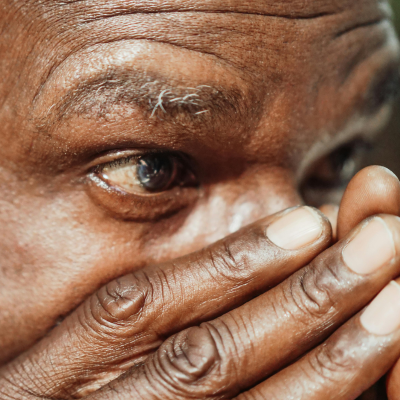- Support 24/7
- +1 (480) 468-4543
- livara@mylivara.com
How to Support Your Skin Through Hormonal Changes

How to Know If You Have Fine Lines or Wrinkles
May 20, 2024
Can Kids’ Hair Products Work for Adults and Vice Versa?
May 22, 2024
Have you ever noticed your skin acting up right before a big event, seemingly out of nowhere? Maybe you’ve experienced breakouts, dryness, or unexpected oiliness that threw your skin into absolute chaos. These sudden skin changes are often linked to hormonal fluctuations, a common experience for many people at various stages of life. Whether you’re navigating the rollercoaster of puberty, dealing with monthly menstrual cycle effects, embracing the journey of pregnancy, or adjusting to the shifts of menopause, hormones play a significant role in your skin’s health. In this guide, we’ll talk about how these hormonal changes impact your skin and provide practical, effective tips to help you support your skin through each phase of these hormonal changes.
Understanding Hormonal Changes and Their Impact on Skin
According to Cleveland Clinic, hormones are chemical messengers that coordinate different functions in your body, including skin health. When hormone levels fluctuate, they can affect the skin in several ways:
- Puberty: During puberty, increased levels of androgens (male hormones present in both males and females) can cause sebaceous glands to produce more oil, leading to acne and oily skin.
- Menstrual Cycle: Hormonal fluctuations throughout the menstrual cycle can cause cyclical breakouts, often referred to as “hormonal acne.” These breakouts typically appear on the lower face, chin, and jawline.
- Pregnancy: Pregnancy hormones can lead to a range of skin issues, from acne and increased oil production to hyperpigmentation and stretch marks.
- Menopause: As estrogen levels decline during menopause, the skin may become drier, thinner, and more prone to wrinkles and sagging.
Tips for Supporting Your Skin During Hormonal Changes
1. Maintain a Consistent Skincare Routine
Consistency is key when managing skin during hormonal changes. Establish a routine that includes cleansing, moisturizing, and sun protection.
- Cleansing: Use a gentle cleanser that suits your skin type. Avoid harsh soaps that can strip the skin of its natural oils. Think of cleansing like a daily reset button for your skin, helping it stay balanced despite the hormonal chaos.
- Moisturizing: Choose a moisturizer that addresses your skin’s unique moisture needs. For oily or acne-prone skin, opt for a lightweight, non-comedogenic moisturizer like the Ruby Glow Body Butter. For dry skin, use a richer, hydrating formula like the Moonstone Shine Body Butter. Your skin will thank you for the extra care, especially when it’s going through changes.
- Sun Protection: Apply a broad-spectrum sunscreen with at least SPF 30 daily to protect your skin from harmful UV rays. Even if you’re dark skinned, UV rays can affect your skin, so make sunscreen a non-negotiable part of your routine.
2. Address Acne and Breakouts
If hormonal changes cause acne, incorporating specific products and ingredients into your routine can help manage breakouts.
- Salicylic Acid: This beta-hydroxy acid helps to exfoliate the skin, unclog pores, and reduce inflammation. Use a cleanser or treatment containing salicylic acid, like the Livara Pearl Facial Cleanser (contains a safe 2% concentration of salicylic acid) to keep acne at bay. Think of it as your go-to ingredient for keeping those pesky breakouts under control.
- Benzoyl Peroxide: An effective treatment for acne, benzoyl peroxide kills acne-causing bacteria and reduces inflammation. Use it as a spot treatment or in a leave-on product. It’s like having a trusted spot-fighting friend in your skincare arsenal.
- Retinoids: These vitamin A derivatives increase cell turnover and prevent clogged pores. Start with a low concentration and gradually increase as your skin adjusts. Retinoids are like the overachievers of skincare, tackling multiple issues at once.
3. Hydrate and Nourish
Hormonal changes can cause skin to become dry or dehydrated. Keep your skin hydrated with the right products and lifestyle habits.
- Hyaluronic Acid: This humectant attracts and retains moisture in the skin. Look for serums or moisturizers containing hyaluronic acid to boost hydration. Imagine it as a tall drink of water for your skin.
- Omega-3 Fatty Acids: Found in foods like salmon, flaxseed, and walnuts, omega-3 fatty acids help maintain the skin’s lipid barrier and reduce inflammation. Consider adding these foods to your diet or taking a supplement. Your skin will glow from the inside out.
- Drink Water: Staying hydrated is essential for overall skin health. Aim to drink at least eight glasses of water a day. Keeping a water bottle handy can help you reach this goal without much effort.
- Naturally Hydrating Ingredients: Incorporate products with natural moisturizers like shea butter, coconut oil, and aloe vera. These ingredients provide deep hydration and nourishment, helping to soothe and repair the skin. Shea butter is especially rich in fatty acids and vitamins, making it excellent for maintaining moisture and improving skin elasticity. Enjoy this magical ingredient in our range of natural skincare products. Coconut oil, with its anti-inflammatory and antibacterial properties, can help keep your skin soft and smooth. Aloe vera is known for its soothing and hydrating qualities, making it perfect for calming irritated skin.
4. Target Hyperpigmentation
Pregnancy and hormonal fluctuations can cause hyperpigmentation, such as melasma. Use skincare products with brightening ingredients to even out your skin tone.
- Vitamin C: This powerful antioxidant helps to brighten the skin and fade dark spots. Use a vitamin C serum in the morning for best results. It’s like sunshine in a bottle for your complexion.
- Niacinamide: Also known as vitamin B3, niacinamide reduces the appearance of dark spots and improves skin texture. It’s gentle and suitable for all skin types. Think of it as a multi-tasker that smooths and brightens.
- Azelaic Acid: This ingredient helps to lighten hyperpigmentation and reduce inflammation. It’s particularly effective for melasma and post-inflammatory hyperpigmentation. It’s like the quiet achiever in your skincare lineup, working steadily to improve your skin.
5. Support Skin with a Balanced Diet
What you eat can significantly impact your skin’s health. Focus on a diet rich in vitamins, minerals, and antioxidants to support your skin through hormonal changes.
- Avoid Sugary and Processed Foods: High-glycemic foods can spike insulin levels and worsen existing acne or trigger its onset. Limit your intake of sugary and processed foods to keep your skin clear. Your skin will no doubt benefit from fewer sugar-induced breakouts.
- Antioxidant-Rich Foods: Fruits and vegetables like berries, leafy greens, and citrus fruits are high in antioxidants, which help protect the skin from damage. Your skin will thank you for the extra dose of nutrients.
- Healthy Fats: Include sources of healthy fats like avocados, nuts, and seeds to maintain the skin’s lipid barrier and keep it hydrated. Think of them as building blocks for healthy skin.
6. Manage Stress
Stress can exacerbate hormonal imbalances and negatively affect your skin. Incorporate stress-reducing practices into your daily routine.
- Exercise: Regular physical activity helps to regulate hormones and reduce stress levels. Aim for at least 30 minutes of exercise most days of the week. Whether it’s jogging, running the treadmill, or jumping rope, regular exercise not only benefits your body but also for your skin.
- Mindfulness Practices: Techniques like meditation, and deep breathing can help calm the mind and reduce stress. Even a few minutes a day can make a difference in how your skin looks and feels.
- Sleep: Ensure you’re getting enough restorative sleep each night, as sleep deprivation can disrupt hormone levels and impact skin health. Sleep is like your body’s natural reset button, regenerating skin cells and facilitating skin repair.
7. Consult a Dermatologist
If you’re struggling to manage your skin during hormonal changes, don’t hesitate to seek professional help. A dermatologist can provide personalized advice and recommend treatments tailored to your skin’s needs.
- Prescription Treatments: For severe acne or other skin issues, a dermatologist may prescribe medications such as retinoids. Professional guidance can make a significant difference in your skincare journey.
- Professional Procedures: Treatments like chemical peels can address various skin concerns related to hormonal changes. These procedures can provide more intensive results than over-the-counter products.
Bottomline
Supporting your skin through hormonal changes requires a combination of consistent skincare practices, targeted treatments, a healthy diet, stress management, and professional guidance when needed. By understanding how hormones affect your skin and implementing these strategies, you can maintain a healthy, radiant complexion no matter what stage of life you’re in. Remember, patience and persistence are key – it may take time to see significant improvements, but with the right approach, you can achieve and maintain beautiful skin. Because you are a gem.





1 Comment
I have read some excellent stuff here Definitely value bookmarking for revisiting I wonder how much effort you put to make the sort of excellent informative website